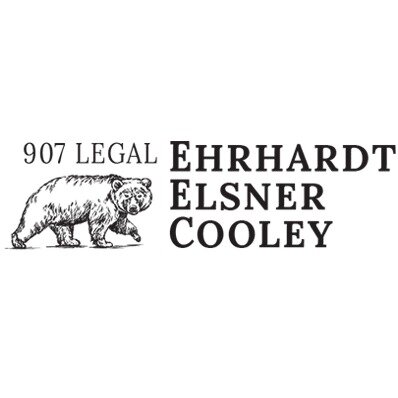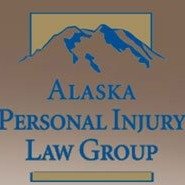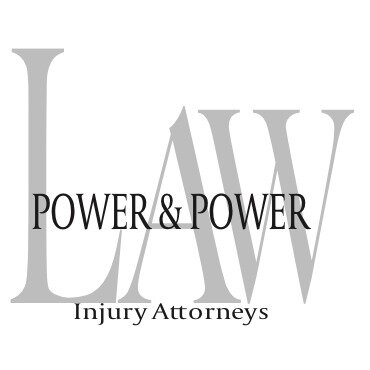Best Personal Injury Lawyers in Alaska
Share your needs with us, get contacted by law firms.
Free. Takes 2 min.
Or refine your search by selecting a city:
List of the best lawyers in Alaska, United States
About Personal Injury Law in Alaska, United States
Personal injury law in Alaska covers a broad range of cases where an individual suffers harm due to the negligence, recklessness, or intentional acts of another person or entity. Common personal injury claims include car accidents, slip and fall incidents, workplace injuries, product liability, and medical malpractice. The goal of personal injury law is to help those harmed recover compensation for their injuries, including medical expenses, lost wages, pain and suffering, and other related losses. Alaska, like other states, has its own specific statutes and regulations that govern personal injury actions, making it important to understand the local legal landscape if you are seeking compensation after an injury.
Why You May Need a Lawyer
There are several situations in which you may need a personal injury lawyer in Alaska. If you have suffered injuries in a car accident, been bitten by a dog, slipped on a hazardous surface, experienced medical malpractice, or encountered defective products, you may have a valid personal injury claim. Navigating insurance claims, determining liability, and calculating damages can be complex and time-consuming. A lawyer can help by evaluating your case, collecting evidence, negotiating with insurance companies, and ensuring that all legal deadlines are met. Additionally, an attorney can advocate for you in court if a fair settlement cannot be reached outside of litigation. In serious or complicated cases, having legal representation increases your chances of receiving maximum compensation.
Local Laws Overview
Alaska follows its own set of laws and procedures for personal injury cases. One of the most important is the statute of limitations, which generally gives injured parties two years from the date of the injury to file a lawsuit. Alaska follows the principle of pure comparative negligence, meaning that if you are partially at fault for your own injuries, your compensation may be reduced by your percentage of fault, but you can still recover damages even if you are more at fault than the other party.
Alaska also places caps on certain types of damages in personal injury cases. For non-economic damages, such as pain and suffering, state law limits recovery in some cases, particularly in medical malpractice claims. Claims against government agencies have special procedures and shorter deadlines, so it is crucial to act quickly if your injury involves a public entity. Finally, Alaska operates under a “fault” based system for vehicle accidents, requiring at-fault parties to pay for losses and injuries they cause.
Frequently Asked Questions
What should I do immediately after being injured in an accident?
Seek medical attention first, report the incident to the proper authorities, document the scene and your injuries with photographs, collect contact information from witnesses, and avoid making statements that accept blame. Consult a personal injury lawyer as soon as possible to discuss your rights.
How long do I have to file a personal injury lawsuit in Alaska?
Generally, you have two years from the date of the injury to file a lawsuit. Some cases, especially those involving government entities, may have different timelines. Speak with a lawyer promptly to ensure you do not miss important deadlines.
What is pure comparative negligence and how does it affect my compensation?
Pure comparative negligence means your compensation will be reduced by your percentage of fault. For example, if you are found to be 30 percent at fault, your damages award will be reduced by 30 percent.
Can I recover compensation if I was partially at fault for my injury?
Yes. Under Alaska law, you can still receive compensation even if you were partially or mostly at fault, but your recovery will be reduced in proportion to your degree of fault.
What types of damages can I recover in a personal injury claim?
You may be entitled to recover medical expenses, lost wages, lost earning capacity, pain and suffering, emotional distress, and, in some cases, punitive damages.
Is there a cap on damages in Alaska personal injury cases?
Alaska law places limits on non-economic damages in certain cases, such as medical malpractice. There may be specific caps depending on the type of case and the parties involved.
What if the person responsible for my injury does not have insurance?
You may still be able to recover compensation through your own insurance policy, such as uninsured or underinsured motorist coverage, or by pursuing the responsible party personally if they have assets.
Should I accept a settlement offer from an insurance company?
Be cautious about accepting early settlement offers, as insurance companies often offer less than the full value of your claim. Consult with a lawyer before agreeing to any settlement to ensure your rights are protected.
How much does it cost to hire a personal injury lawyer in Alaska?
Many personal injury lawyers work on a contingency fee basis, meaning they only get paid if you win your case. The fee is typically a percentage of your recovery, so there are usually no upfront legal fees.
Can I handle a personal injury claim on my own?
While it is possible to handle minor claims on your own, complex cases involving serious injuries, disputed liability, or significant damages often require the experience and negotiation skills of a qualified attorney to achieve the best outcome.
Additional Resources
For more information and assistance regarding personal injury in Alaska, consider contacting the following resources:
- Alaska Court System - Provides information on filing small claims and civil cases
- Alaska Bar Association - Offers lawyer referral services and legal resources
- Alaska Department of Law, Consumer Protection Unit - Handles complaints related to consumer rights
- Alaska Division of Insurance - Useful for questions about insurance coverage and claims
- Local legal aid organizations - Can provide free or low-cost legal assistance for those who qualify
Next Steps
If you or a loved one has been injured in Alaska and you believe someone else is at fault, it is important to take prompt action. Start by seeking necessary medical care and documenting everything related to the incident and your injuries. Review your insurance policies and start a file with all related documents, including medical records, accident reports, and communications with insurance companies.
Consider consulting with a personal injury lawyer to evaluate your case and receive guidance tailored to your situation. Most attorneys offer free initial consultations and work on a contingency fee basis. The sooner you seek legal advice, the better your chances are of preserving valuable evidence and protecting your rights.
Remember, you do not have to navigate the legal system alone. Support is available through professional legal advocates, and timely action can make a significant difference in the outcome of your case.
Lawzana helps you find the best lawyers and law firms in Alaska through a curated and pre-screened list of qualified legal professionals. Our platform offers rankings and detailed profiles of attorneys and law firms, allowing you to compare based on practice areas, including Personal Injury, experience, and client feedback.
Each profile includes a description of the firm's areas of practice, client reviews, team members and partners, year of establishment, spoken languages, office locations, contact information, social media presence, and any published articles or resources. Most firms on our platform speak English and are experienced in both local and international legal matters.
Get a quote from top-rated law firms in Alaska, United States — quickly, securely, and without unnecessary hassle.
Disclaimer:
The information provided on this page is for general informational purposes only and does not constitute legal advice. While we strive to ensure the accuracy and relevance of the content, legal information may change over time, and interpretations of the law can vary. You should always consult with a qualified legal professional for advice specific to your situation.
We disclaim all liability for actions taken or not taken based on the content of this page. If you believe any information is incorrect or outdated, please contact us, and we will review and update it where appropriate.
Browse personal injury law firms by city in Alaska
Refine your search by selecting a city.
















